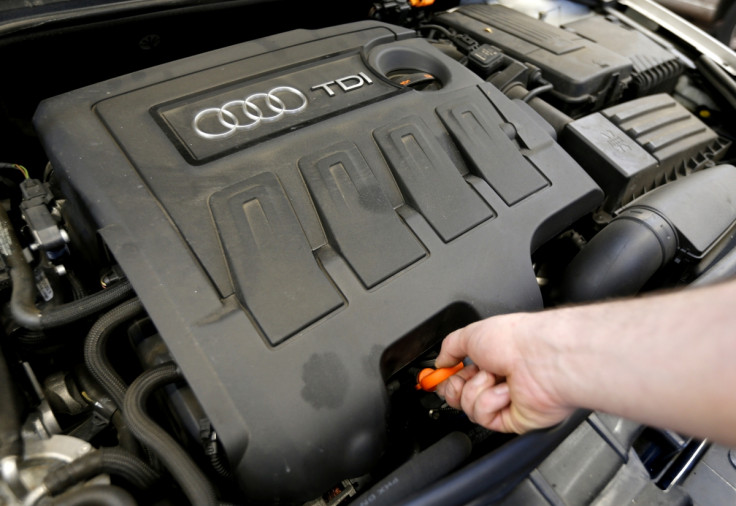Volkswagen scandal: France launches its own investigation

France has become the first European country to launch its own investigation to tackle the fallout from the Volkswagen diesel emissions scandal. Europe's largest carmaker, Volkswagen, admitted on 22 September that it had rigged diesel emissions tests in the US, and Germany's transport minister, Alexander Dobrindt, confirmed it had also manipulated them in Europe, where the carmaker sells about 40% of its vehicles.
Tests to investigate the 'fraud'
Following the news that 11m vehicles worldwide have been affected, France took a tough stance and ecology, sustainable development and energy minister Ségolène Royal officially launched an investigation into the possible fraud on 1 October.
Royal explained France would take 100 randomly-selected cars in its domestic market and put them through real-life pollution emissions testing before comparing the results with those carried out under laboratory conditions.
"Our goal is simple. We need the French authorities to ensure that every vehicle put on the market in France complies with the regulations. I have asked the EPA [US Environmental Protection Agency] to provide all pertinent information so as to understand the nature of the fraud and ways to detect it," Royal said during a visit at the Autodrome de Linas-Montlhéry in the Essonne, where a section of the tests are carried out.

Independent commission to supervise the inquiry
An independent technical commission has been set up to identify and assess these tests. It comprises of consumer associations, the ministries of ecology, industry and economy, the Agency for Environment and Energy Management, (ADEME) and scientific experts.
"The commission is absolutely necessary to restore the trust of consumers and manufacturers. And it must ensure that we act in full transparency on this issue. All these recommendations will be made public," Royal insisted.
NGO files complaint for reckless endangerment
The launch comes a day after a French NGO, Ecology Without Borders (Ecologie sans frontière, ESF ), filed a complaint alluding to Volkswagen for "endangering others" and "aggravated deception" with the Prosecutor of the First Instance Court of Paris.
For ESF, the revelations "confirm the fact that some economic actors are willing to sacrifice the health of millions of people to increase their financial gains".
François Lafforgue, who represents the NGO, told local media: "There is, in this case, deception and endangerment of the lives of others.
"The manufacturer misled vehicle buyers by equipping them with software to hide their failure to meet the standards on emissions. These facts constitute aggravated deception since they make the use of the vehicles dangerous for human health."
Lafforgue added: "The investigation will have to determine the chain of responsibility, particularly those of the leaders who participated in this deception."

UK government pressured to launch investigation
Of the 11 million vehicles sold across Europe, 948 064 were sold in France – significantly less than in the UK which has become one of the worst affected countries. Volkswagen revealed that almost 1.2m vehicles were involved in the scandal – representing more than one in 10 diesel cars on the UK's roads. The carmaker's admission on 30 September increased the pressure on the British government to launch a full investigation.
How did Volkswagen rig its tests?
Volkswagen rigged the tests by fitting its cars with emissions-cheat devices.
The car-maker programmed its on-board software to detect when cars with its TDI diesel engine were undergoing an emissions test, using information from the steering, brakes and accelerator.
These components are designed to recognise when an emissions test is under way and adjust the engine's performance, by tweaking the engine settings to minimise levels of nitrogen oxides (NOx), a notorious pollutant shown to be harmful for both humans and the environment alike.
Long term exposure to NOx can decrease lung function, increase the risk of respiratory conditions and increases the response to allergens.
© Copyright IBTimes 2025. All rights reserved.





















